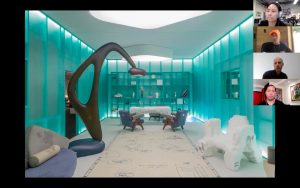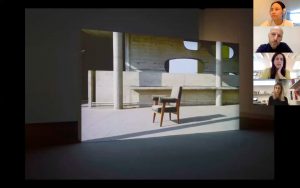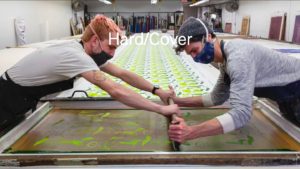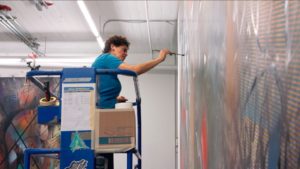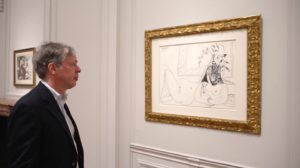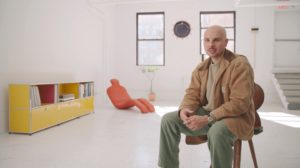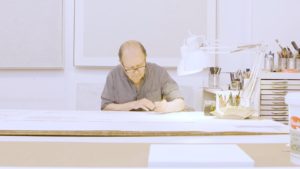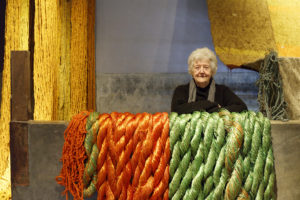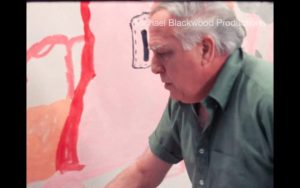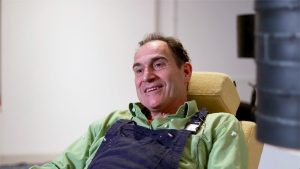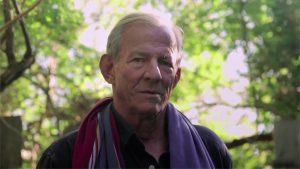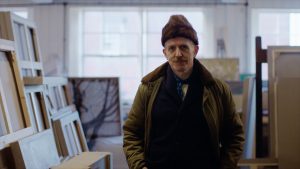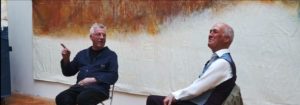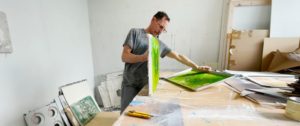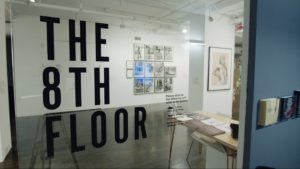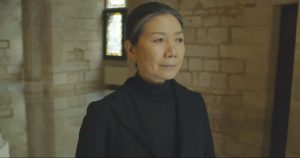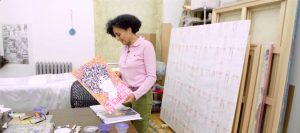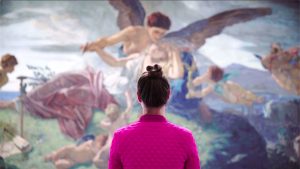“The question of reality is very much at stake in what you do, because you also work in simulation, and of course you work very heavily in digital technology – which I think for many people feels like a hyper-real, rather than just a real real – but then bring those dynamics into analog, physical, bodily space. That’s really where a lot of the creative friction of the work seems to happen. So, insofar as we’ve been in a kind of open-mouthed state of disbelief in a lot of respects over the past years, your work feels more relevant than ever, perhaps, simply because of its fundamental humanism, and way of trying to bring those new technologies into some meaningful relationship with people’s direct experience – psychological, physical experience.” — Glenn Adamson on Random International
For this Design in Dialogue conversation from Friedman Benda, host Glenn Adamson talks with Hannes Koch and Florian Ortkrass of the art group Random International. Founded in 2005, they are perhaps most famous for their project the Rain Room (2012). Based out of studios in London and Berlin, their work “explores the human condition in an increasingly mechanised world through emotional yet physically intense experiences, [aiming] to prototype possible behavioural environments by experimenting with different notions of consciousness, perception, and instinct.” In this remarkably timely conversation, recorded on January 20, 2021 – the day of President Joe Biden’s inauguration – Adamson engages in a wide-ranging dialogue touching on the nature of reality and how Random International’s work both challenges it and makes our relationship to it more real.
From Friedman Benda, Design in Dialogue:
The London-based studio Random International is at the forefront of interactive and immersive art experiences. In celebrated projects such as the Rain Room, Swarm, and Our Future Selves, they have found ways to humanize the technology that strongly shapes our society, creating emotional yet physically intense experiences. We are joined by the studio’s founders, Florian Ortkrass and Hannes Koch, who explained their methodology, which incorporates aspects of place-making, behavioral prototyping, and psychological engagement.




